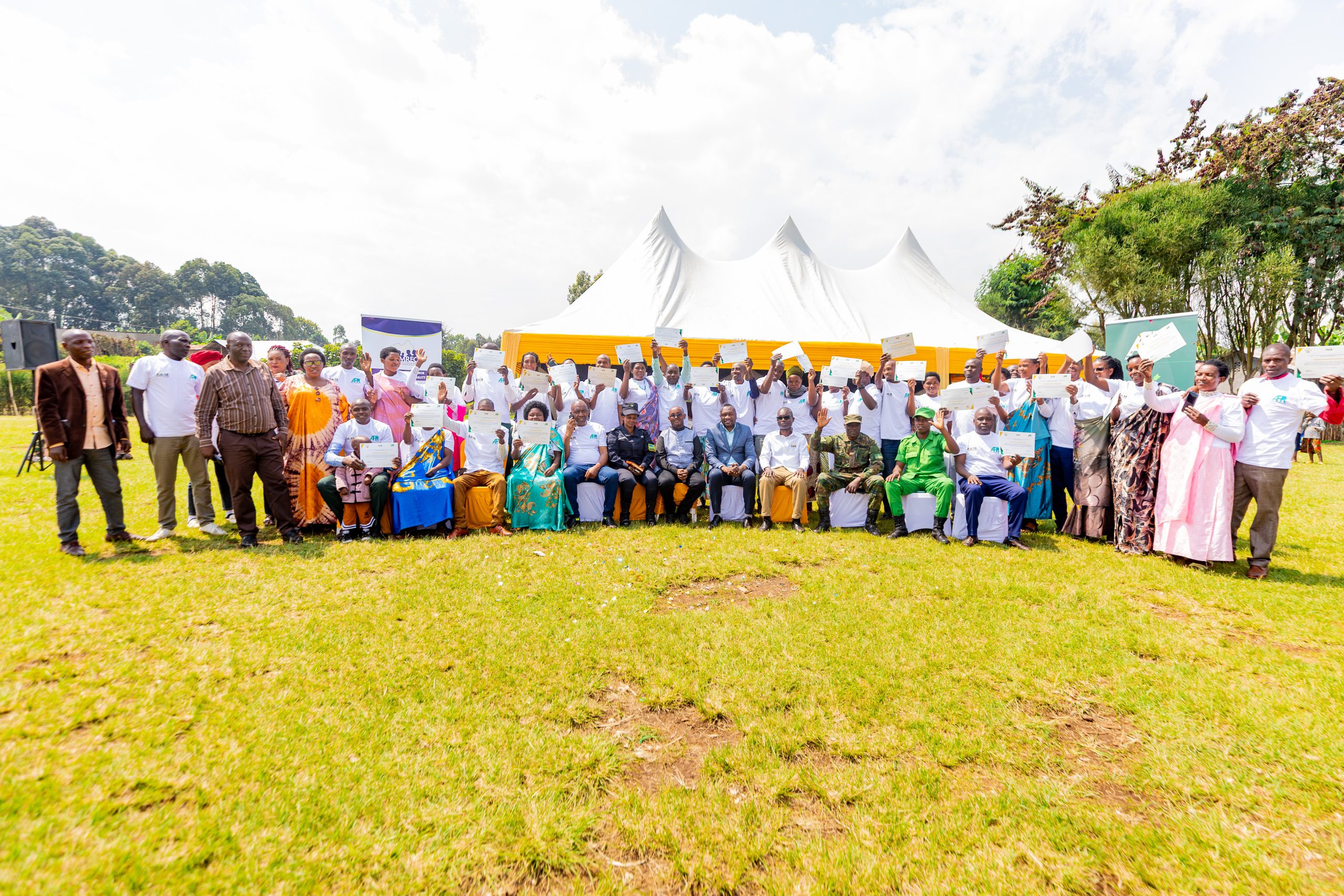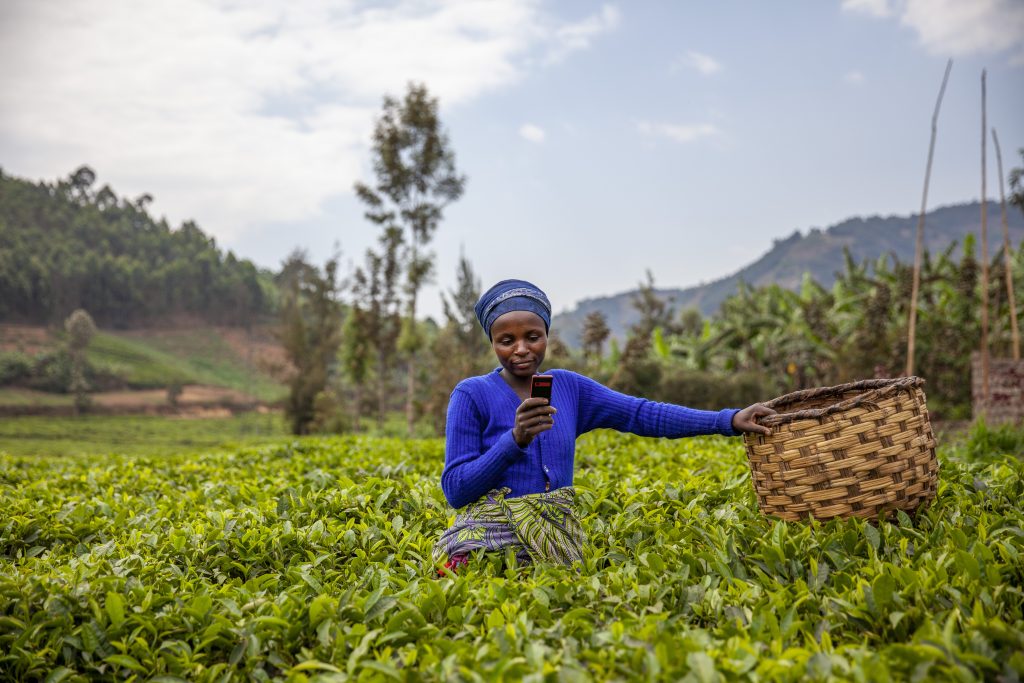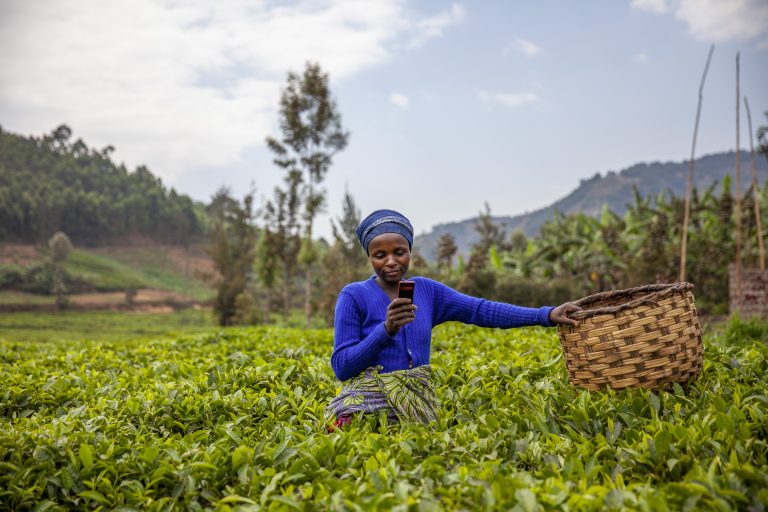Marie Claire Uwabera, a tomato vendor from Burera, was surprised to return home and find her house tidied and cleaned by her husband, Jean Claude Maniriho, a stark contrast to his past behaviour of beating her for coming home late.
Thanks to the ‘Wisigara Mugore’ programme’s 15-week Journey of Transformation (JoT) curriculum, Uwabera and her husband now consider themselves “partners in love and development.”
The JoT curriculum , developed by Access to Finance Rwanda (AFR) in partnership with Rwanda Men’s Resource Centre (RWAMREC), aims to address gender social norms that prevent women’s financial inclusion and economic empowerment.
The initiative engaged 30 couples, totalling 60 people, from the Cyanika and Cyeru sectors in Burera, which included women running micro, small, and medium enterprises (MSMEs) and their spouses.
On Tuesday, August 26 and 28, 30 couples from Cyanika and Cyeru graduated from the programme, with 11 of them legalising their unions in civil marriage as a result of the training.
The curriculum guided couples to build stronger financial capabilities, make joint decisions, share care responsibilities equitably, and reduce gender-based violence within families.
It featured interactive dialogue sessions, helping couples to create a shared vision and reflect on how gender norms shape expectations.
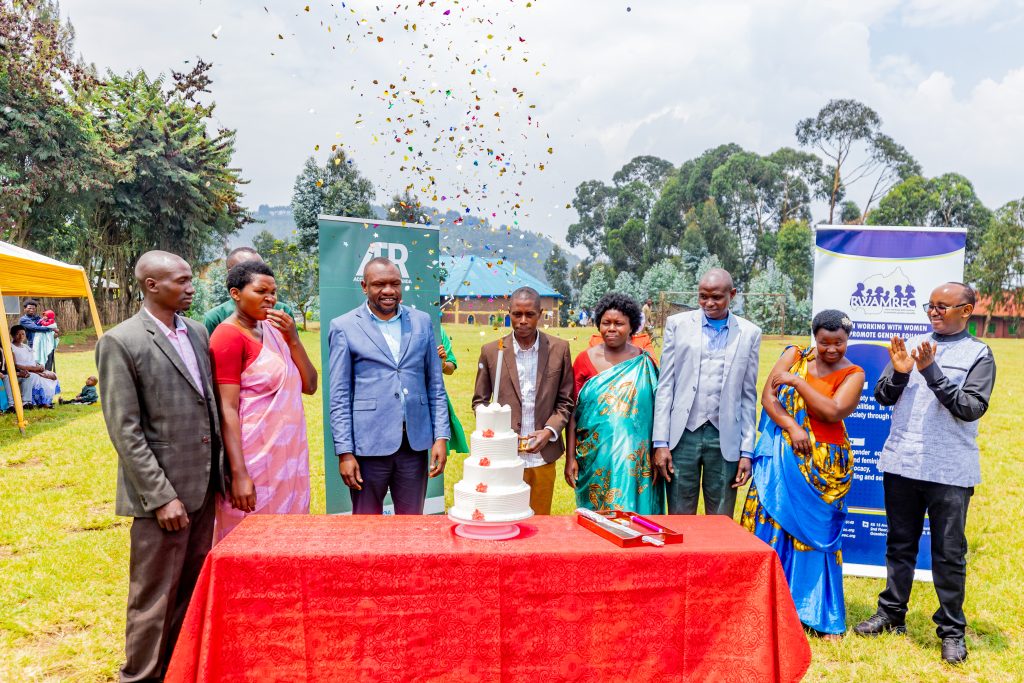
Officials and beneficiaries cut a cake in celebration of the achieved goals through ‘Wisigara Mugore’ programme’s 15-week Journey of Transformation (JoT) curriculum. All photos by Craish BAHIZI
Uwabera, who used to flee her house and escape to her parents due to consistent domestic arguments and fights, testified that the programme completely reshaped her marriage.
“The first week I joined, my husband who had never given me a coin for business, gave me money to increase my capital. Later, I would return home to find he had cooked, cleaned, and cared for our children,” Uwabera explained, adding that she now feels supported, encouraged, and hopeful for the future.
“This showed me the power of collaboration. Today, even though the capital is still small, at least I see promising growth.”
Her husband, Maniriho, who also serves as a community leader, admitted that ignorance and negative cultural perceptions as men had held them back and slowed down development in their families.
“We used to discourage and undermine our wives, not realising we were blocking our own families’ progress,” he said.
“Now, every morning, we plan together, share responsibilities, and work as a team. I am proud to do some of the home chores like washing dishes. It is part of building our family.”
They expressed their gratitude to RWAMREC and AFR for bringing change in their family. They also started a campaign encouraging other families, especially those with domestic issues, to adopt similar practices that empower women and drive economic growth.
Jean Damascène Nsengimana from Cyeru Sector said that receiving the training, he used to harvest bananas and beans and would sell them to his wife, but he would take the money and spend it in bars.

Fidele Rutayisire, Executive Director of RWAMREC, addresses graduates and guests during the ceremony.
He said: “My wife had a shop, but she had no control over the produce we harvested because I kept it locked away. When her stock ran out, I would only give her more from our harvest if she paid me for it.”
Nsengimana went on to explain that in the evenings, he would ask his wife to close the shop and come cook for him, yet that was the time she had the biggest number of customers. He told her that if she refused, he would evict her from the shop premises and rent it out to someone else.
Olive, Nsengimana’s wife, confirmed that their life used to be like that, but said everything changed significantly after the training. She said: “Now we work together. When my husband gets money from a side job, he gives it to me as business capital. Our business is really growing.”
Jean Baptiste Nshimiyimana, Burera District’s Vice Mayor for Economic Development, described the programme as “a very important opportunity” to empower women entrepreneurs and foster healthy families.
He called for togetherness between men and women, noting that men should support their wives and daughters in achieving their goals and flourishing. “Families that participated in this programme have changed,” he said.
“We urge them to share this knowledge with others. These 30 couples can be seeds of transformation in their communities.”
Fidele Rutayisire, founder and Executive Director of RWAMREC, described the pilot as a success, citing visible behavioural changes among men and women.
“This was just a pilot phase, but we are not done yet. It yielded great results,” Rutayisire said.
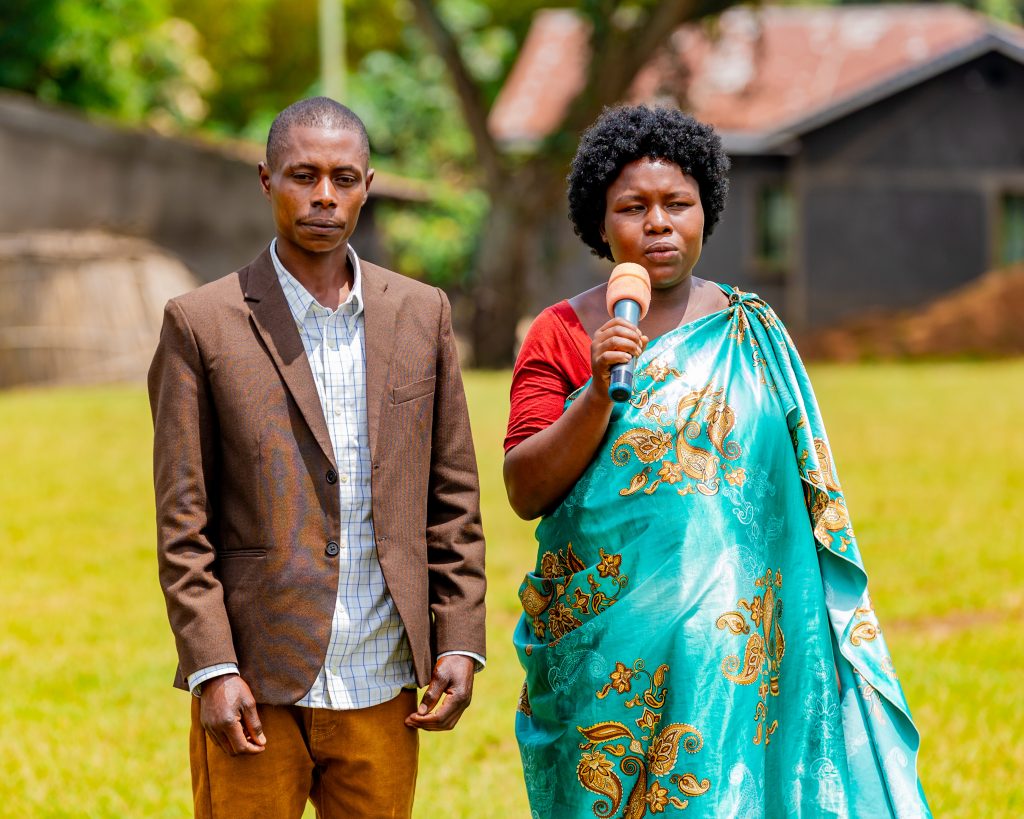
A couple sharing testimony during the graduation ceremony
“We saw men collaborating with their wives and taking part in daily chores. Wisigara Mugore was a pilot, but the plan now is to expand and reach more than 1,000 families.”
A study conducted by Access to Finance Rwanda (AFR) in 2022 revealed that social norms present significant barriers that prevent women from having full control over the use of household income. In some cases, women also lack sufficient time to engage in business due to the heavy burden of domestic work, which is culturally considered to be the responsibility of women alone.
It is against this backdrop that AFR launched a project called “Wisigara Mugore” aimed at promoting women’s financial inclusion and economic empowerment by addressing gendered social norms that hinder their development and facilitating their access to financial services.
Among the 30 families that received training through the “journey of transformation” programme, 11 couples who had been living together informally made the decision to legally marry. Their marriage ceremonies were held during an official empowerment event.
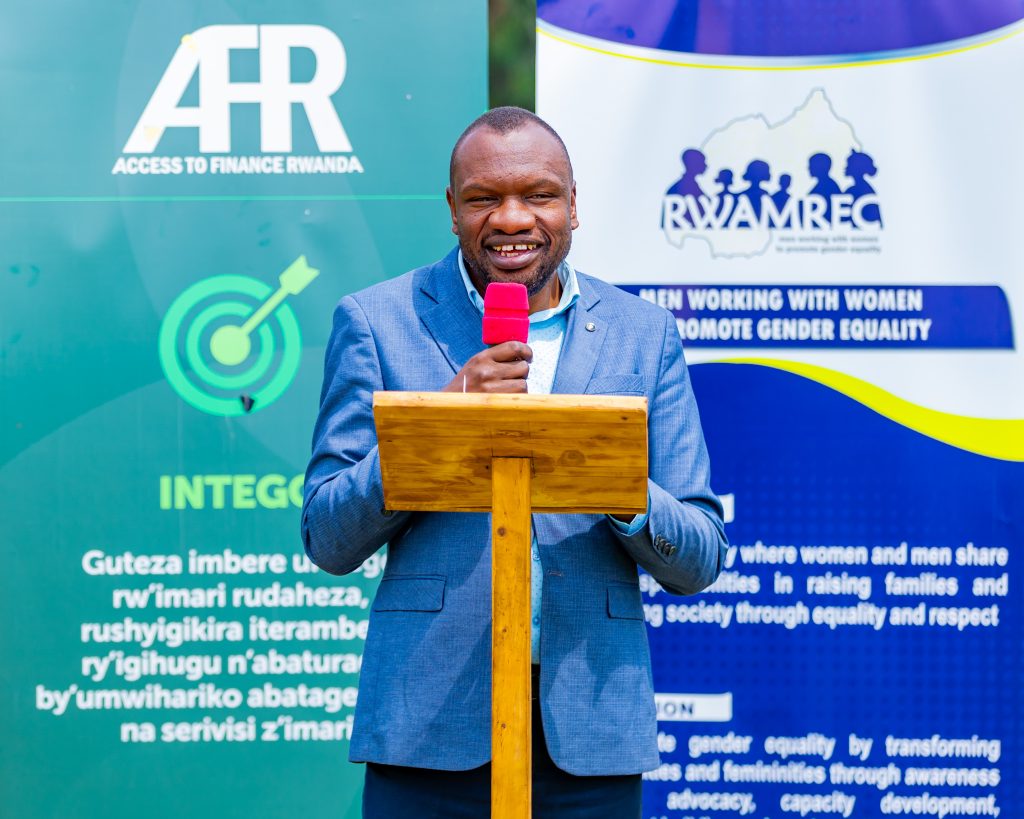
Jean Baptiste Nshimiyimana, Burera District’s Vice Mayor for Economic Development, delivered his remarks during the graduation ceremony in Cyanika sector.


